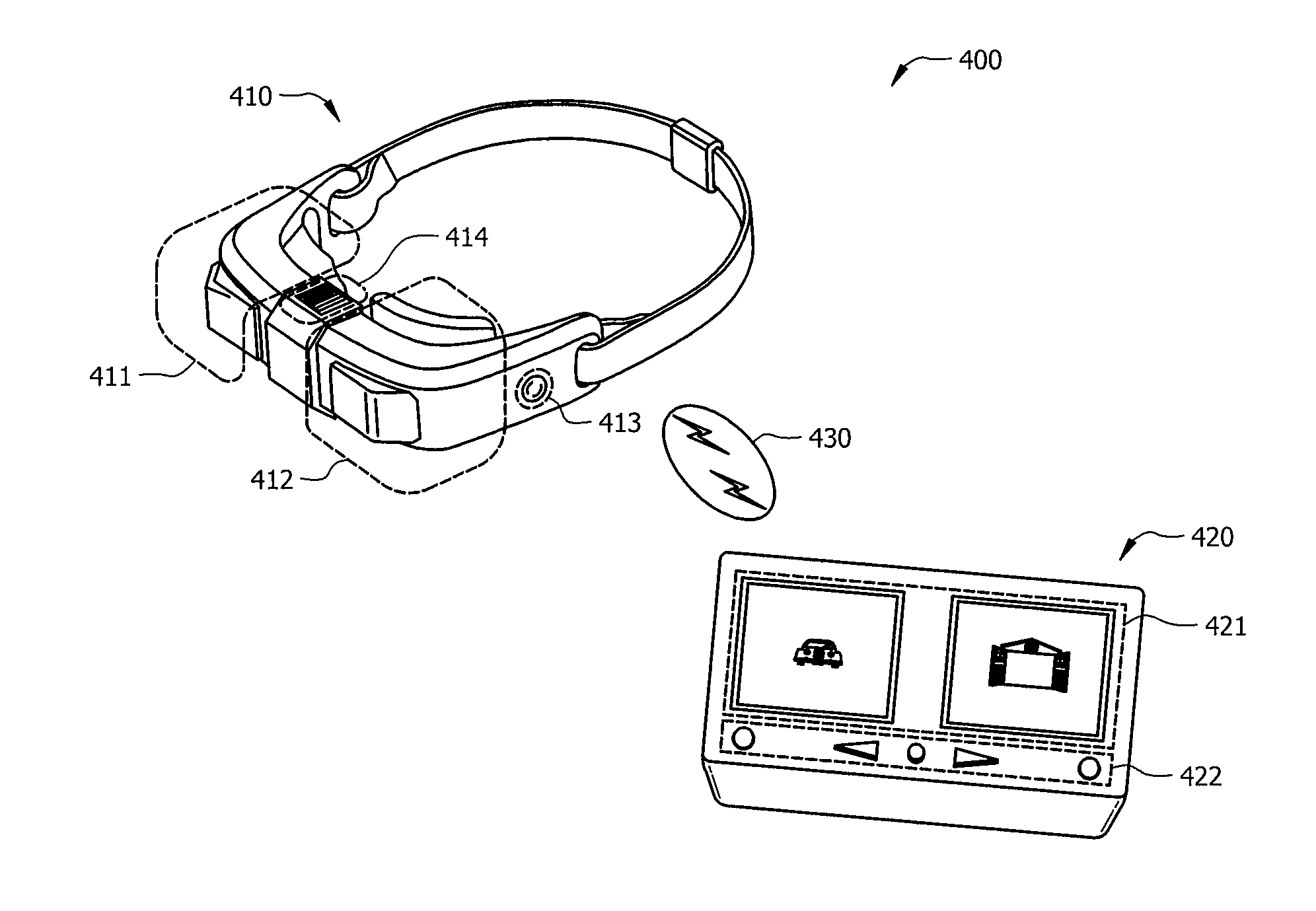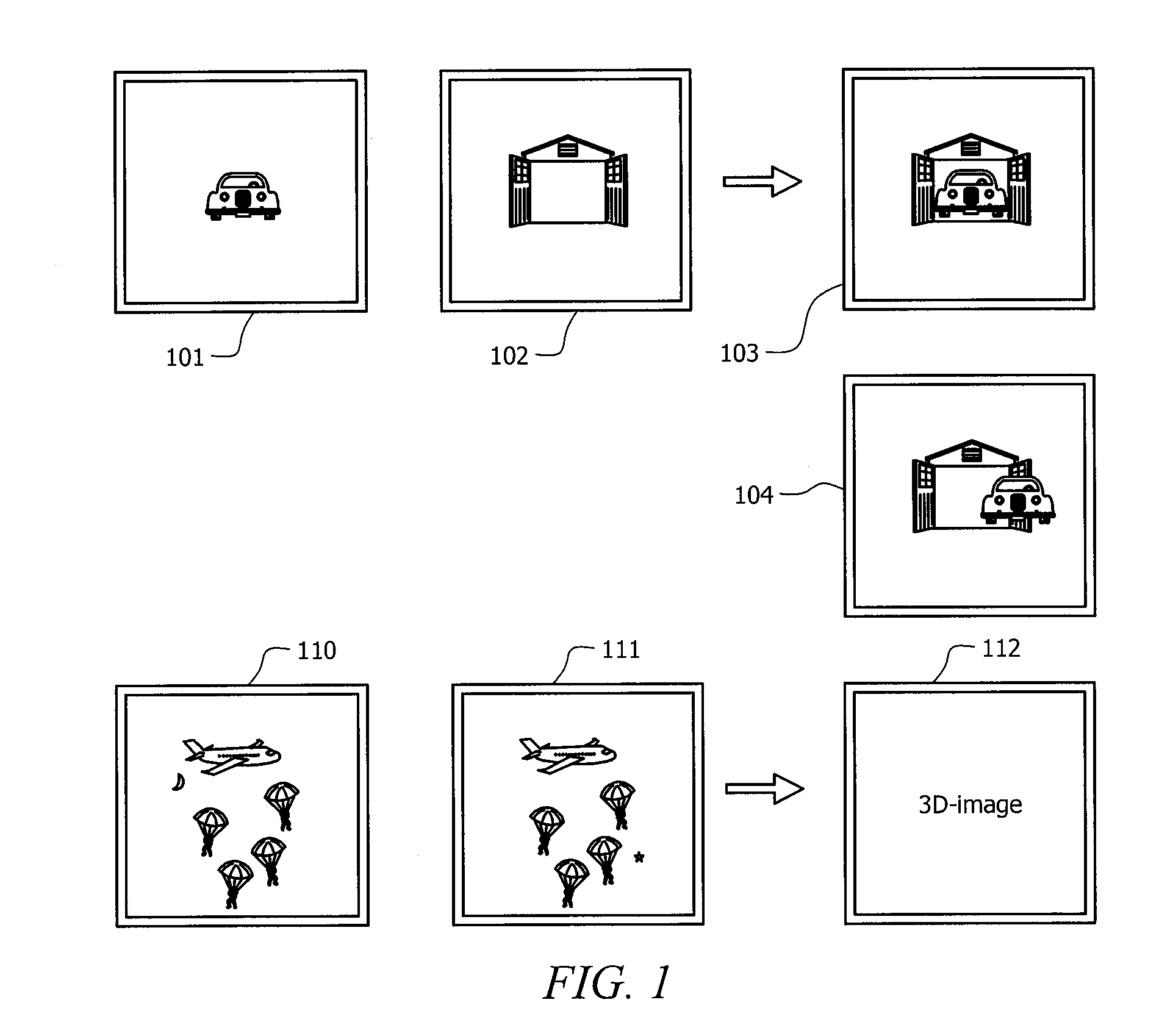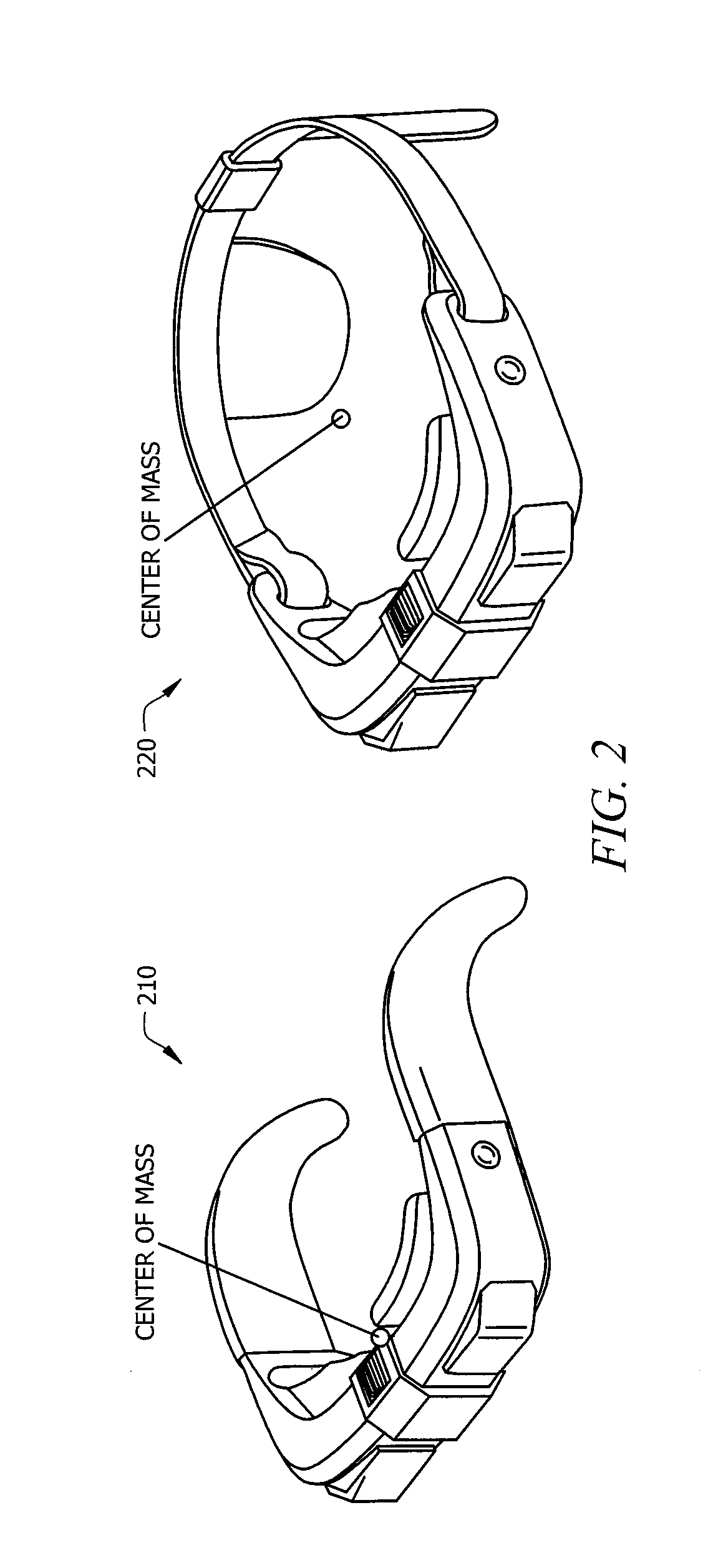Systems and Methods for Binocular Vision Diagnosis and Treatment
a binocular vision and system technology, applied in the field of binocular vision diagnosis and treatment, can solve the problems of general lack of treatment for binocular vision capability, inability to accurately perceive combined images, and inability to manufacture synoptophores, so as to reduce the need for frequent travel and reduce the need for expensive manufacture.
- Summary
- Abstract
- Description
- Claims
- Application Information
AI Technical Summary
Benefits of technology
Problems solved by technology
Method used
Image
Examples
Embodiment Construction
[0024]FIG. 2 is an illustration of exemplary embodiments of a device adapted according to aspects of the invention. FIG. 2 shows goggles 210, according to a first embodiment, and goggles 220, according to a second embodiment. Goggles 210 are smaller and lighter, whereas goggles 220 are a little larger and heavier but designed to fit better and to have a center of mass near the middle of the patient's head. The scope of embodiments is not limited to those shown in FIG. 2, as other embodiments may take other forms.
[0025]The example embodiments of FIG. 2 illustrate a novel binocular vision system in a compact display platform, e.g., a portable electronic LCD goggle, and an inventive implementation of adjustable optics to achieve binocular fusion for diagnosis and treatment of binocular vision disorder in amblyopia and strabismus patients and other persons with visual disorders due to brain defects. Various implementations and methods of use are described further below.
[0026]FIG. 3 is a...
PUM
 Login to View More
Login to View More Abstract
Description
Claims
Application Information
 Login to View More
Login to View More - R&D
- Intellectual Property
- Life Sciences
- Materials
- Tech Scout
- Unparalleled Data Quality
- Higher Quality Content
- 60% Fewer Hallucinations
Browse by: Latest US Patents, China's latest patents, Technical Efficacy Thesaurus, Application Domain, Technology Topic, Popular Technical Reports.
© 2025 PatSnap. All rights reserved.Legal|Privacy policy|Modern Slavery Act Transparency Statement|Sitemap|About US| Contact US: help@patsnap.com



